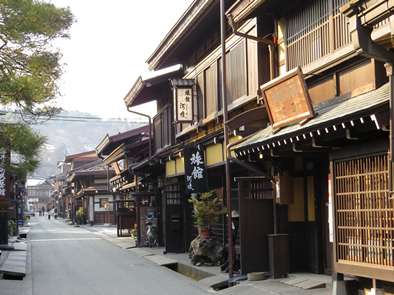Thank you for your assistance in Mary’s court case.
Best regards,’
Kuroda received a reply from the UK. The appraisal report should fulfill the client’s request. Case closed, Kuroda thought, and when he was about to send the invoice, he received an unexpected e-mail.
To his surprise, he received a request to testify online about real estate appraisals during the family court trial in the UK.
Kuroda previously had experience giving similar testimonies in a Japanese court. And “only” in Japanese courts. It is nerve-wracking to answer questions from an opposing lawyer and the judge. The same would be true in the courts of the UK. Yes, Kuroda had some confidence in his English conversation skills. But he wasn’t sure he’d make it through a trial solely using English. Most importantly, thanks to the time-zone differences, the trial would be held during his sleeping hours, in the middle of the night.
He checked his calendar. On the day of the trial, Kuroda was scheduled to meet some other clients in person, and the case was about a crucial inheritance. He had made plans to sell real estate properties at the clients’ request. And during the meeting, Kuroda had to explain all the details to the co-heirs. He wouldn’t be awake enough to explain anything if he attended the trial during the night. Kuroda replied that he had an important meeting scheduled the next day and could not testify on the day of the trial.
In whatever country the trial is held in, the best way to enhance the credibility of an appraisal is for the appraiser himself to testify in court and answer questions from both parties and the court. Nevertheless, the differences between real estate agents and real estate appraisers in Japan should be researchable in the UK. It is a lawyer’s job to gather trial materials and convince the judge. Kuroda secretly thought.
That evening, Kuroda met with a lawyer he knew to discuss another case. The discussion ended early, so they had time to exchange information on other matters. During the conversation, without giving names and details, Kuroda told the lawyer that he had been asked to testify about real estate appraisal in a family court in the UK. He also told the lawyer that he had declined the request.
Kuroda explained, “A real estate agent in Nagoya made an appraisal for the property. The client wants me to testify about the difference between the opposing party’s and my version of appraisal.”
“Is that so? I don’t know much about the British court system and the real estate transactions, but they seem to have different court procedures.”
“Yeah, I guess that’s why they’ve asked me to testify.”
“By the way, about six months ago, I heard that a real estate agent in Nagoya got caught for tax evasion.” The lawyer suddenly remembered about the incident and informed Kuroda.
In that instant, Kuroda also remembered something crucial. When Kuroda did his investigation at Takayama City, there was a vacant lot. Nearby laid the “For Sale” sign. And the discarded “For Sale” sign had a real estate agent’s name on it. When he took a picture of that “For Sale” sign, he didn’t realize what had actually interested him in the first place. But now, he knew why. He had seen that agent’s name before in the newspaper or on the Internet. Kuroda quickly searched through the picture files on his smartphone. Then, he turned his smartphone screen toward the lawyer.
“Oh yeah, that’s the one.” The lawyer also searched for something on his phone, opened a news media page, and showed it to Kuroda. It was news that the National Tax Bureau of Aichi and the Aichi District Public Prosecutor’s Office had filed a complaint against the company suspected of tax evasion. Yes, Kuroda had seen this web page before.
A few days later, Kuroda received another e-mail from the lawyer in the UK.
To his surprise, the lawyer asked Kuroda to have a debate with the real estate agent in Nagoya - the one who made the appraisal for Gordon. The lawyer stated that this time, Kuroda could schedule the date and time of the debate. And this was a court order.
The lawyer says that the real estate agent has been handling a lot of properties for foreigners. Therefore, they probably have foreign employees whose native language is English. Even if a Japanese person could speak fluently in English, they might have difficulty discussing against a native English speaker, so maybe the opposing side was trying to win some points over the debate. The lawyer asked if Kuroda could explain the authority a real estate appraiser has in Japan.
Kuroda took a moment to think the proposal over. The other party is probably aware of the validity of Kuroda’s appraisal. They might think that even if Kuroda could speak some English, he would be an ordinary Japanese man. If it came to debate, native speakers would have huge advantages against Kuroda. The other party may have asked the court for a debate based on such an assumption. The lawyer may be right. But the truth of setting a debate might have some deeper meaning. If the trial continued without such a debate, the court would have to study Japanese materials to learn about the Japanese real estate systems in detail. Maybe they want to avoid such effort and save themselves the trouble of accurately translating the Japanese text into English. Even the lawyer on Mary’s side might be thinking the same thing.
If the other party underestimated Kuroda’s English and asked for a debate, he wanted to take up the challenge. But protecting his self-confidence should not be a primary goal in business dealings. Kuroda rethought. Wanting to prove that he could speak English shouldn’t be the motive to challenge a native speaker in a debate. Be careful of what you wish for, Kuroda thought and declined to attend a debate. Taking the bait wouldn’t be a smart move.
But the lawyer works for Mary and is contacting Kuroda on her behalf. And Mary is Kuroda’s client. He shouldn’t just say “no” to everything. So, instead of simply telling them “NO,” he sent an English translation of the headline and summary of the article about the scandal of the real estate agent in Nagoya. And, of course, he also sent the URL of the article. The chance of winning a trial using an appraisal made by a tax-evading agent sounds very promising. The only way to counter Mary’s appraisal by Kuroda would be to prepare a new one. However, creating a trustworthy appraisal stating prices that are very low compared to Mary’s would be unrealistic. If that were the case, Kuroda thought the other party might not be willing to spend more on a losing battle. After seeing the article, if the opposing party or the court asked Kuroda again to participate in the debate, he’d be ready for it then.
The next day, Kuroda received a reply e-mail saying that it was regrettable that he could not participate in the debate but appreciated the valuable information.







